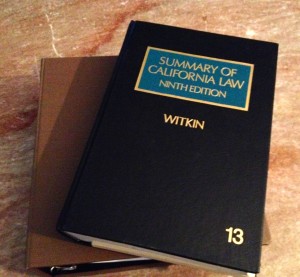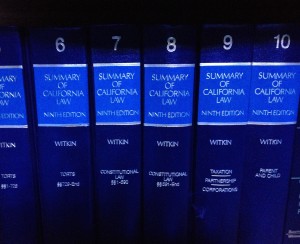Understanding “Causation” in Legal Malpractice
In order to prevail in a legal malpractice claim, the plaintiff client (or former client) must prove that the lawyer’s wrongful conduct caused the plaintiff to suffer injury or damages.
This is called the “causation” requirement, and it’s a mandatory element of a malpractice claim or lawsuit. It isn’t enough to show that the attorney breached a duty of care, or even that the client suffered damages — there must be a causal link between the two. The plaintiff bears the burden of proving this element of the claim (and all the others) so it’s important to understand what constitutes “causation” in this context.
Over the next few weeks, we’ll examine causation in more detail, but today we’re taking an overview of the subject.
HOW DOES A PLAINTIFF PROVE CAUSATION IN THE LEGAL MALPRACTICE CONTEXT?
Generally, causation is established in one of two ways:
1. Demonstrating that in the absence of the attorney’s professional negligence (malpractice/breach of duty), the client would not have suffered the relevant harm or damages. (This is often called the “but for” test.)
2. Proving that the attorney’s breach of duty was a “concurrent, independent” cause of the client’s injury or damages.
CAUSATION IS AN ISSUE OF FACT, WHICH MAY BE RESOLVED BY A JURY
As a general rule, the issue of causation in a legal malpractice action is considered an issue of fact, which means it can be resolved by a jury. (In civil lawsuits, questions of fact can be resolved by juries, while questions of law are resolved by the presiding judge.) This means that after each side presents its evidence in the case, the jury will decide whether or not the plaintiff has met the burden of proving causation (and any other issues of fact which the jury can properly decide).
However, in cases where causation has been proven (or disproven) to such a degree that “reasonable minds cannot differ,” the judge may take the issue away from the jury and rule on causation as a matter of law. This makes clear evidence and strong arguments particularly important for both plaintiffs and defendants in a malpractice action.
Additionally, parties need to be aware that expert testimony, though important, must be used carefully with regard to causation. An expert is not generally permitted to testify that a plaintiff client would (or would not) have prevailed in an underlying lawsuit “but for” the lawyer’s professional negligence. The decision whether “but for” causation exists belongs to the jury, and courts do not want experts to “take away” the jury’s ability to decide questions of fact.
***
Always consult an experienced, licensed attorney if you believe you have a malpractice claim against a current or former lawyer. Never rely on this or any other article to evaluate your claims, as individual situations and claims vary widely.
















